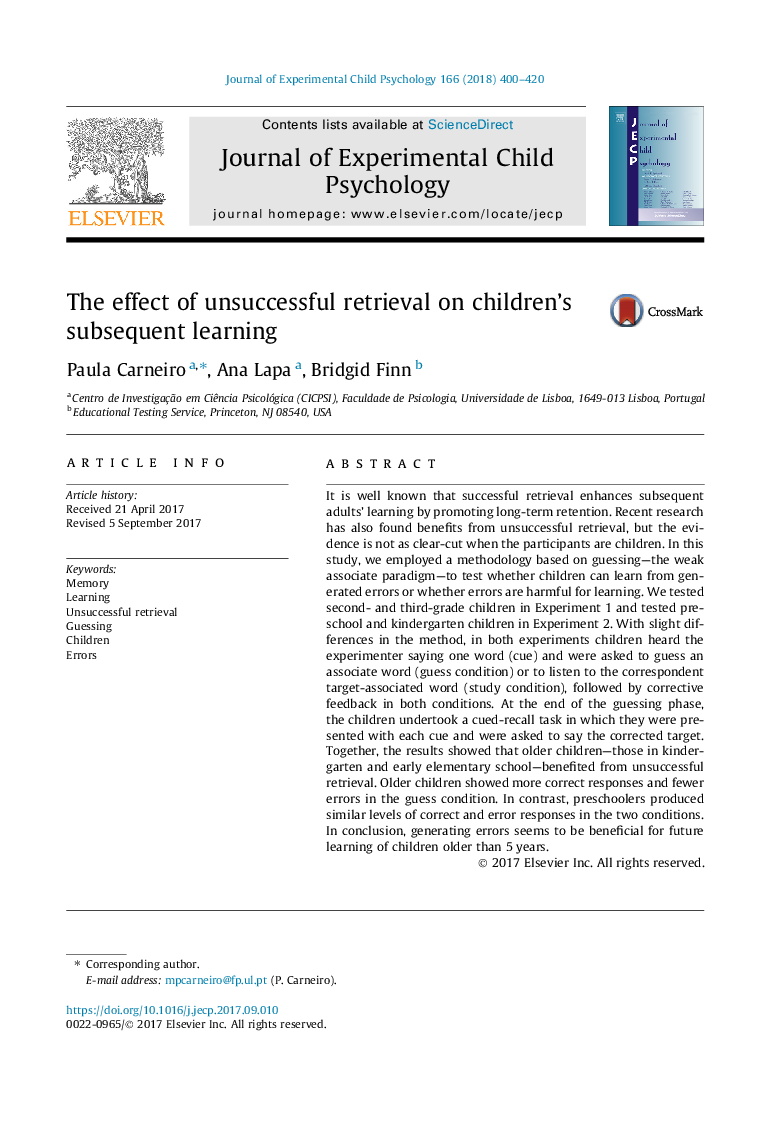| Article ID | Journal | Published Year | Pages | File Type |
|---|---|---|---|---|
| 5039874 | Journal of Experimental Child Psychology | 2018 | 21 Pages |
â¢Guessing produced more correct responses and fewer errors than study for older children.â¢Preschoolers did not benefit from guessing.â¢Unsuccessful retrieval enhances learning with children older than 5 years old.â¢Generating errors did not harm learning in children.
It is well known that successful retrieval enhances subsequent adults' learning by promoting long-term retention. Recent research has also found benefits from unsuccessful retrieval, but the evidence is not as clear-cut when the participants are children. In this study, we employed a methodology based on guessing-the weak associate paradigm-to test whether children can learn from generated errors or whether errors are harmful for learning. We tested second- and third-grade children in Experiment 1 and tested preschool and kindergarten children in Experiment 2. With slight differences in the method, in both experiments children heard the experimenter saying one word (cue) and were asked to guess an associate word (guess condition) or to listen to the correspondent target-associated word (study condition), followed by corrective feedback in both conditions. At the end of the guessing phase, the children undertook a cued-recall task in which they were presented with each cue and were asked to say the corrected target. Together, the results showed that older children-those in kindergarten and early elementary school-benefited from unsuccessful retrieval. Older children showed more correct responses and fewer errors in the guess condition. In contrast, preschoolers produced similar levels of correct and error responses in the two conditions. In conclusion, generating errors seems to be beneficial for future learning of children older than 5Â years.
